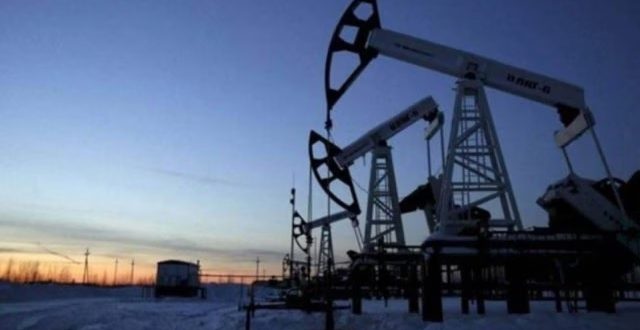The United States has sanctioned four India-based companies over their alleged involvement in trade and transportation of Iranian crude oil and petroleum products. As part of the Trump administration’s “maximum pressure campaign” on Iran, the US Department of the Treasury’s Office of Foreign Assets Control (OFAC), and the US Department of State on Monday imposed sanctions on over 30 persons and vessels in various countries, and these four India-based firms are on the list.
According to information from the OFAC and the US Department of State, the four Indian companies are Navi Mumbai-based Flux Maritime LLP, National Capital Region (NCR)-based BSM Marine LLP and Austinship Management Pvt Ltd, and Thanjavur-based Cosmos Lines Inc. Three of these four companies have been sanctioned for being commercial or technical managers of vessels allegedly involved in transportation of Iranian oil and petroleum products, while one—Cosmos Lines—has been sanctioned for its alleged involvement in transport of Iranian petroleum.
While Flux Maritime, BSM Marine, and Austinship Management are part of the Registrar of Companies (RoC) database, there is no record of Cosmos Lines on the registry. Queries sent by The Indian Express to Flux Maritime, BSM Marine, and Austinship Management on their RoC-registered email addresses remained unanswered.
“Among those sanctioned today are oil brokers in the United Arab Emirates (UAE) and Hong Kong, tanker operators and mangers in India and People’s Republic of China (PRC), the head of Iran’s National Iranian Oil Company, and the Iranian Oil Terminals Company, whose operations help finance Iran’s destabilizing activities. The vessels sanctioned today are responsible for shipping tens of millions of barrels of crude oil valued in the hundreds of millions of dollars,” the OFAC said in a release Monday.
“The Iranian regime continues to destabilize global security with its nuclear threat, ballistic missile program, and support for terrorist groups. Iran’s oil exports are enabled by a network of illicit shipping facilitators in multiple jurisdictions who, through obfuscation and deception, load and transport Iranian oil for sale to buyers in Asia. Today, the United States is taking action under President Trump’s maximum pressure campaign on Iran to stem the flow of revenue the regime uses to fund these destabilizing activities,” US Department of State said in a separate release.
This is not the first instance of Indian companies being placed under sanctions for involvement in sanctioned energy transportation and trade through the so-called shadow fleet of tankers. For instance, in October, India-based Gabbaro Ship Services was sanctioned for alleged involvement in transportation of Iranian oil. In August and September, three India-registered shipping firms were sanctioned by the US over their alleged involvement in transporting liquefied natural gas (LNG) from Russia’s Arctic LNG 2 project, which is under American sanctions.
Most of the Indian companies that have been sanctioned by the US over purported violations of energy sector-related sanctions appear to be small and hitherto little-known entities set up in recent years, and not large enterprises. It is in line with the trend observed in other countries where shipping entities have been sanctioned for facilitating trade that is restricted or under sanctions.
The shadow fleet refers to vessels involved in Russian, Iranian, and Venezuelan crude oil and petroleum products trade. With Western fleet operators loath to get involved in the oil trade of these countries due to sanctions of varying degrees, obscure operators from countries like Greece, Russia, and China, and tax havens like Marshall Islands, Liberia, and Panama have emerged as the major players. The oil and gas industries of Russia, Iran, and Venezuela have been under sanctions or restrictions from international powers, particularly the US.
Bottom of Form
A large number of opaque fleet tankers have complex and obscure ownership structures and are registered in geographies with lax regulatory oversight. Often, such vessels, which are quite old, operate with substandard insurance and certifications.
Source:Indian Express
 Afghanistan Times
Afghanistan Times


